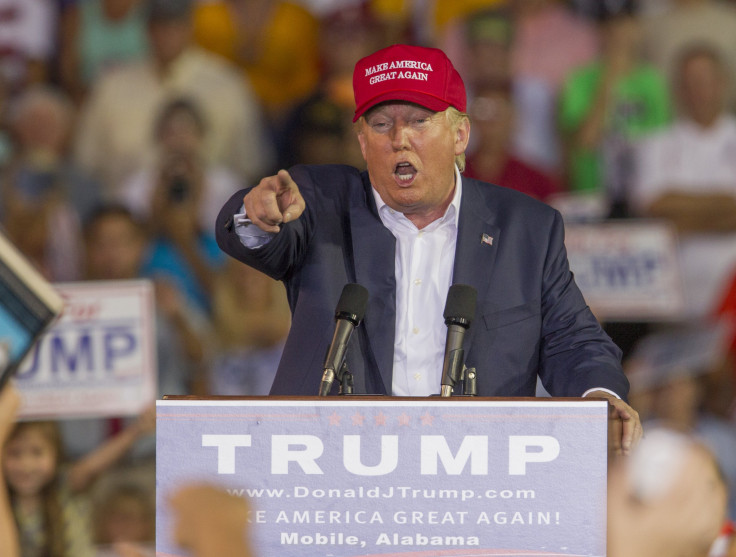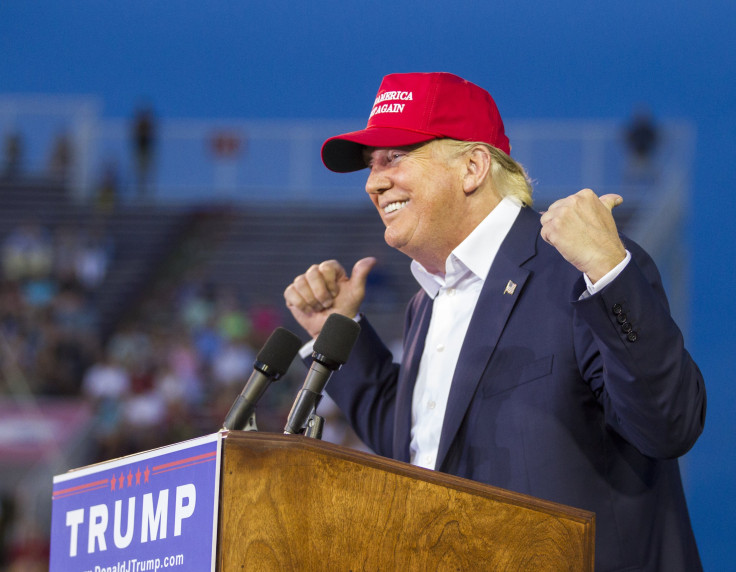Virginia GOP Loyalty Oath: Trump Targeted By Republican Pledge?

Republican leaders in Virginia and North Carolina are considering requiring loyalty oaths from presidential primary contenders, Politico reported Tuesday. The move could be troublesome for Donald Trump, who said he was open to a third-party run in the first Republican debate earlier this month.
Virginia and North Carolina party leaders might require candidates entering their respective Republican primaries to pledge their support to the eventual Republican presidential nominee. The new requirement would ensure that any candidate who does not receive the nomination does not run as a third-party candidate in the general election.
“Anybody who wants to seek the Republican nomination should have to commit to supporting the ultimate Republican nominee,” said Ken Cuccinelli, Virginia’s former attorney general and 2013 gubernatorial nominee, Politico reported.
Cuccinelli later clarified his remarks regarding Trump in a follow-up e-mail, the Washington Post reported.
"Donald Trump is an important candidate in the race for the White House and I don’t think he or anyone else should be blocked from running as a Republican,” said Cuccinelli in the e-mail. "But once the primary is over, that’s it. I support the Virginia sore-loser law that prevents candidates that lose a primary from running third-party."

As Trump continues to pick up speed in the primary contest, party leaders in Virginia and North Carolina said they hope the ballot proposals will help convince the business mogul to fully commit to the Republican party, Fox News reported. Many Republicans think that a win in Virginia, a key swing state, is necessary in order to take the White House, and Trump’s looming threat of possibly running as a third-party candidate has made some party leaders nervous.
“You can’t win the White House without Virginia; you can’t win Virginia without all the Republicans in Virginia; and you can’t get the Republicans to turn out unless the hundreds of thousands of volunteers next year work their tails off,” said John Whitbeck, chairman of the Virginia GOP, the Washington Post reported. “What they’re asking before they commit to you as a candidate: Commit to them. Be part of the team.”
Whitbeck said the requirement is not meant to target Trump specifically. North Carolina party leaders are considering a similar move and said they are talking with lawyers about how to implement it, Politico reported.
As Republican leaders try to get Trump to commit to their party, some said they should proceed with caution. In the past, Trump warned that he would leave the GOP if party leaders treated him unfairly.
“Donald Trump is like this menacing alien presence approaching Earth. Every time you shoot at him, he just keeps getting bigger and stronger — it doesn’t affect him,” said Steve Albertson, a member of the Virginia GOP’s governing board, the Washington Post reported. “There’s some risk if we do something like this, some of the folks aiming directly at Trump may regret it.”
A loyalty pledge is not new to GOP politics. South Carolina has required every Republican candidate of the past 30 years to sign a basic pledge, said Matt Moore, chairman of the South Carolina GOP, the Washington Post reported.
Primary requirements must be submitted to the Republican National Committee by Oct. 1.
“Ballot access usually is regarded as a party function,” said former RNC Chief Counsel Tom Josefiak, Politico reported. “It definitely would be left up to the state party to decide how it’s going to operate.”
© Copyright IBTimes 2024. All rights reserved.






















